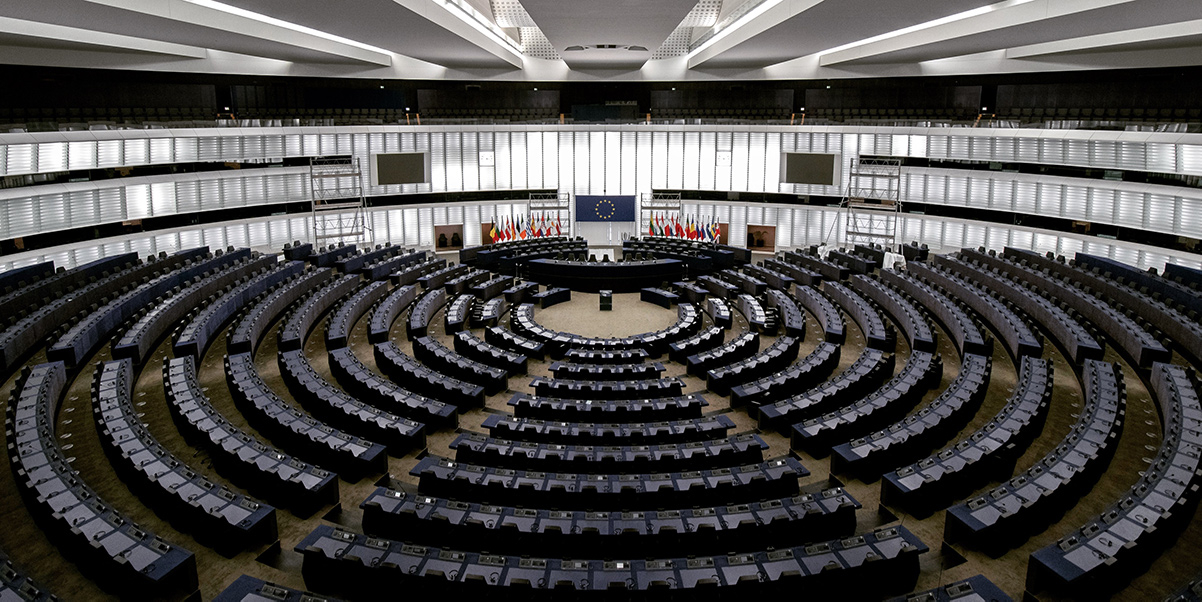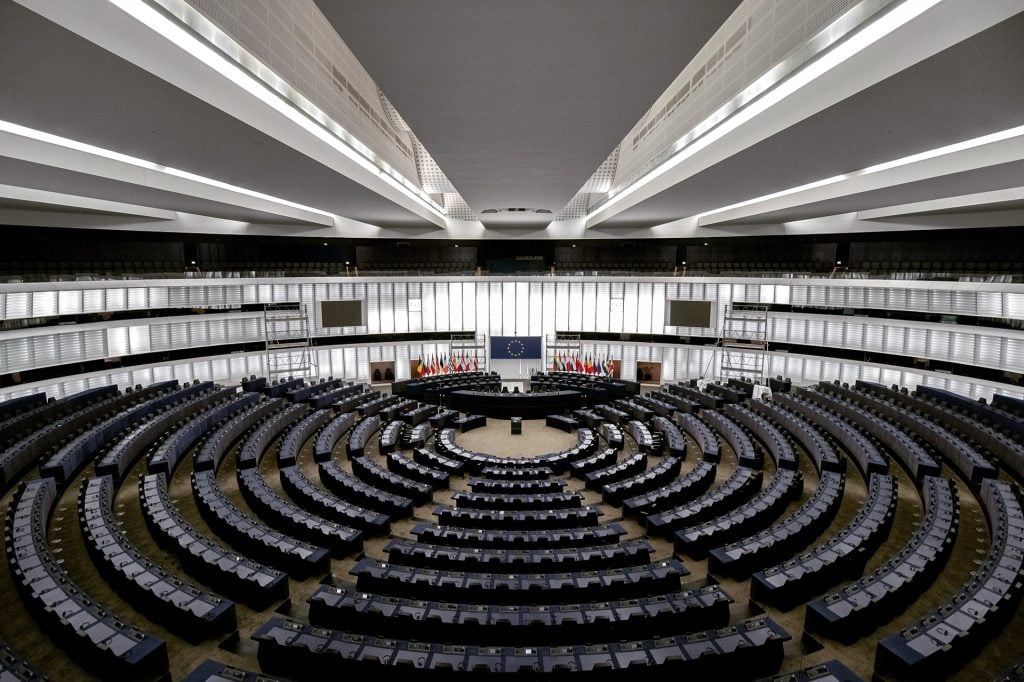Citizens Assemblies for Global Affairs
What is Good Governance?
Climate change, global pandemics, resource conflicts; the greatest threats facing the world today and tomorrow are unquestionably global in both nature and solution. Any government that governs well must think both to the future and to the world, this requires making decisions that benefit tomorrow’s generation at the expense of the present, and redefining international competition as international cooperation.
Trust in governance is key; policies required for good governance may be unpopular and have short-term unwelcome consequences. Citizens that suffer disadvantages must believe that decisions being made on their behalf are for the legitimate public interest. A government that holds the trust of its citizens should be well placed to shape and impact global agendas. For international partners, the knowledge that a government has the trust of its citizens and the ability to drive forwards international agendas domestically is paramount for successful cooperation. Building national and international institutions that can sustain the trust of citizens has become a critical task in 21st-century governance.
The Problem with Populism
Populism at its heart is inward-facing, it advocates the protection of national interests and gives rise to nationalism. International agencies and their elites are often seen as the enemy against the people – under populism, it is the people who should shape national agendas. Thus, as a wave of populism insidiously shapes government policies, countries’ global agendas are subjugated to nationalism. Global threats cannot be effectively governed and mitigated against if populist fuelled nationalism continues its rise.
Propelled with the defense of the support of people, and the failure of the existing establishment, populism tends towards authoritarianism. Populist governments attempt to bypass or undermine existing democratic institutions, the processes of which exist to ensure good governance. The executive views its mandate to govern as given by the people and therefore does not hold itself entirely accountable to the checks and balances of government. As is the hallmark of authoritarian regimes, little or no opposition arises from an establishment that is aligned with the populists. This tendency towards authoritarianism in governance quashes debate, compromise fairness, and sustainability. Instead of considering the viewpoints of opposing parties who advocate international agendas, the populists march forwards fueling the flames of authoritarianism, nationalism, and distrust of anyone who opposes them, armed with the belief that they have the support of the people.
Populist parties have gained around 25% of the vote share in Europe and shaped many political landscapes. Capitalizing from and further encouraging a loss of trust in existing governments, populism and its anti-global rhetoric have further led to a lack of trust and faith in international institutions. Populists have further turned their rhetoric against a diverse range of institutions – including business, the media, and NGOs. Surveys have shown a precipitous drop in public trust in all of these institutions at a global level. These trends highlight the importance of recognizing that populism is a systemic problem faced by almost all institutions, both governmental and non-governmental. Any hope of addressing the crisis of populism will thus depend on rethinking governance in a way that reflects populism’s penetrative nature. Populism is too embedded in society to bypass, thus to govern well also entails that government is responsive to the demands of populism, without surrendering to its nationalistic and anti-trust rhetoric and direction.
The Governance Paradigm
The reasons why existing governance structures have demonstrated a susceptibility to populism are various. The complexity of governance has in many cases made the decision-making process in institutions opaque, with certain groups seemingly possessing privileged access to power. Populist politicians have sought to exploit the resentments created by these perceived injustices through the elaboration of conspiracy theories, most notably the existence of a “globalist†elite who control governments and global organizations for their own nefarious advantage and thus pose a threat to the ordinary citizen. Throughout his time in office, U.S. President Donald Trump made “globalists†one of the main targets of his bellicose rhetoric; and amongst supporters of populist projects around the world, the term globalist has become shorthand for members of the elite seeking to preserve their hold on power.
For governments and non-government organizations, it has proven extremely difficult to fight against this kind of rhetoric. Governance processes are inherently complex and in many cases, the sheer diversity of stakeholders can often result in controversial or even malevolent groups and perspectives being included in governance processes. The compromises the system reaches are often imperfect, and populists have found it profitable to find scapegoats to hold responsible for perceived failures in decision-making.
Populists tend to focus on a handful of regular scapegoats. One of these is experts. Another are the supranational organizations that impose rules and constraints on national governments. Brexiteers in the UK has used national identity as a bulwark against the globalist “governance†agenda – arguing that British institutions should be focused on the interests of “native†citizens. In states where populists gain majoritarian power, they are able to make a compelling case for direct democracy to overcome the normal “corrupt†processes of political bargaining, as was seen with the 2016 Brexit referendum.
Political parties shift their positions inwards in response to surges in anti-global sentiment. Nationalism provides a comforting and familiar tonic against the disquiet and foreignness of the threats of globalization. However, reinvigorating nationalist sentiment at a time where global solutions are needed more than ever to address global problems posing threats to humanity, leads to a paradoxical problem, how do you persuade both citizens and governments to engage with and improve global governance in an age of populism, the antithesis of global governance?

Proposal
Any solution must attempt to bridge the gap between global governance and citizens, to encourage citizens not to see national interests as separate from global governance, but as one common interest. The validation that populism seeks from the people suggests a shift in power away from the executive to its citizens. However, this shift should be channeled to be far more constructive and democratic than is currently the case.
Governance itself must thus be rethought in such a way that it recognizes that citizens have perspectives that are not given sufficient weight in existing frameworks. Helping citizens appreciate different points of view and the challenges of governance is crucial, as is a process for reconciling these differences. One approach, widely discussed and trialed in recent years has been the creation and use of citizens´ assemblies. These are temporary groups of citizens, selected to form a representative sample of the population. Listening to both the views of experts and each other, citizens are given the opportunity to share and debate their perspectives on major public policy issues, ideally reaching compromised solutions and presenting recommendations to the government for action. In 2017, a citizens´ assembly set up by the Irish government played a major role in overturning the country´s longstanding ban on abortion including recommending the referendum that resulted in the lifting of the ban. In 2019, French President Emmanuel Macron launched a series of citizens´ assemblies to address some of the policy controversies that had fuelled the yellow vest protest movement. In response to these assemblies, a climate law has been drafted taking into account some of the recommendations of the assembly. In the UK, six select committees of the House of Commons called a citizens assembly for climate change that ultimately involved 108 people, representing the demographic diversity of the UK, discussing the country’s strategy for reaching net-zero greenhouse gas emissions by 2050.
Building on these, our solution is the creation and institutionalization of a process for establishing national citizens’ assemblies that would be specifically tasked with tackling problems of international governance. These problems would be complex global challenges that involve diverse stakeholders; for example, climate change, global health, development aid, reforms to global trade, and migration. Several citizen assemblies attempting to convey and deal with the complexity of national governance have been trialed in Belgium and the Netherlands. One of these programs in Belgium, known as G1000, invited 6000 people to participate in a consultation to set the agenda for a separate group of 1000 citizens to discuss at a one-day “citizens’ summit.†A slightly different G1000 event in the Netherlands brought together a mix of randomly selected members of the public and several hundred targeted representatives of relevant stakeholders groups such as civil society, business owners, and civil servants in order, in the words of the organizers, to recreate “the system in one room.â€
The programs in Belgium and the Netherlands have several major advantages that we would include within our proposal. Firstly, citizens would be responsible for deciding which issues the assembly should discuss, avoiding the top-down approach which could alienate certain sectors of society as happened in the French “Great Debate.†Secondly, members of the assembly would be regularly rotated, avoiding the establishment of a new citizens´ elite and ensuring that diverse voices are continually heard. Thirdly, key governance stakeholders, such as business owners and civil servants, would be explicitly included in the decision-making process to encourage citizens to recognize their importance in policy-making. Finally, the conclusions and recommendations of each assembly would be sent to the relevant government committees, with a requirement that they also be debated in the national parliament and an official response from the government given. The recommendations should also be presented to the general public on television, radio, and social media. This would help ensure that the government takes the recommendations of the assembly seriously, along with engaging the wider public with its work. Widely disseminating the views of citizens as debated in citizens assemblies should present a constructive and balanced view of citizens’ opinions on global issues, and have a broadening effect on the understanding of the complexity of international issues. By bringing the importance and relevance of international issues closer to citizens we believe it would also serve to abate the rise of nationalism, as citizens become more engaged with global problems.
We believe a citizens assembly set out in this fashion, should improve a crucial sector of governance during the age of populism. On the one hand, it would provide a new and highly visible route for grassroots participation in policymaking – further institutionalizing the consultation processes that many governments already use when designing legislation. This will make it harder for populists to accuse political leaders of ignoring the demands of citizens. But more importantly, these assemblies would compel citizens to think about global challenges from the perspectives of policymakers. By mixing randomly selected citizens with groups representing important stakeholders and experts, participants will gain a clearer idea of who influences governance processes and why compromise and cooperation are vital for solving policy problems.
To ensure representation of the population, citizens should be randomly selected with oversampling of minority groups if required, to ensure a representative sample of the population is selected. These assemblies could, over time, bring substantial numbers of ordinary people into the policymaking process. This would help to address one of the key criticisms of these kinds of assemblies – that they are of benefit only to those fortunate enough to directly participate in them. Citizens would be fully compensated for their time, and provided with high levels of expert support and guidance, to ensure that everyone can fully participate and to make the feeling of participation feel like a privilege rather than a burden.
Building on these principles, we have set out a list of key recommendations for the successful function of these assemblies:
- They should be set up with a clear focus on international governance.
- The assembly must be continuous in nature such that it does not lose momentum or become a tool for governments to use when convenient.
- The agenda should not be set by the same people debating it, this is to ensure the impartiality of the agenda, and to mitigate against people defending their own suggestions.
- Citizens should spend sufficient time as part of the assembly to develop a good understanding of the subject, without becoming permanent members. Depending on the regularity of meetings, the ideal period of membership would be six to twelve months.
- The assembly should consist of a representative sample of the population with an oversampling of minorities if there is a low take up.
- A diverse pool of representatives from business, civil society, government, and academia should be involved to provide insight into governance issues. Organizers must avoid relying on friendship and insular professional networks to run such events.
- The assemblies should be run free of direct government control, and with transparency as to the selection of participants and sources of funding.
- The assembly should be institutionalized through outputs being discussed in select committees and parliament.
- Findings should be presented via television, social media and radio to engage the wider public and further hold the government accountable to the solutions of the assembly.
Conclusion
Citizens assemblies, if used correctly, can revive trust in the decision-making processes by directly engaging citizens in the governance process. Of course, no singular solution can bring a decisive end to the populist movements we have seen take hold in recent years, but it will provide a means for governments, and other stakeholders, to reverse the foundering of trust in society and improve the ability of governments to govern well.
The 21st century is likely to be dominated by major global challenges, from global pandemics to climate disasters. Populism’s nationalist tendencies are thus particularly dangerous in this moment. Our proposed solution directly addresses the challenge to global society posed by populism. It is only through rethinking the way that the world governs itself that we can find ways to tackle the greatest threats facing humanity.
Charlotte Gaughan is a public policy statistician at the Office of National Statistics predominantly working on health statistics to inform policy.
Dr. Oliver Elliott teaches International Crisis Management at Geneva Business School and manages the school´s doctorate program and research center. He is co-editor of the Geneva Business School Magazine.






